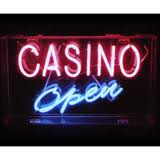WALL STREET CRAPS MARKET OBSERVATIONS FOR SEPTEMBER 25, 2012
 MARKET OBSERVATIONS FOR SEPTEMBER 25, 2012: The stock market is going through a very shallow correction in terms of price. I would expect the market to begin a short rally any day now as part of institutional window dressing. That rally should take the Dow to a new closing high. But the early part of October could bring the long-awaited swing to the downside in order to counter-balance the excessive euphoria and complacency in the market. That move down could end up being steep and swift as well. So be prepared!
MARKET OBSERVATIONS FOR SEPTEMBER 25, 2012: The stock market is going through a very shallow correction in terms of price. I would expect the market to begin a short rally any day now as part of institutional window dressing. That rally should take the Dow to a new closing high. But the early part of October could bring the long-awaited swing to the downside in order to counter-balance the excessive euphoria and complacency in the market. That move down could end up being steep and swift as well. So be prepared!
Key market indicators show the following:
- McClellan Summation Index – is on the verge of turning down. This is warning us to beware of the market failing at the upcoming retest of last week’s highs and then falling sharply afterwards.
- Investor Sentiment – is mid-ranged in the short-term and in the sell area long-term.
- NYSE Breadth Oscillator – Ultimate Indicator reading of 27 which is a short-term buy signal.
- Nasdaq Breadth Oscillator – Ultimate Indicator reading of 32 and needs to close below 30 to signal a buy to confirm the NYSE signal above.
- Risk On/Risk Off Indicator -Ultimate Indicator reading of 53 and needs to close below 30 to signal a buy.
- Fear & Greed Index of Investor Sentiment – is now in the “Extreme Greed” area warning of market danger
For now, the best advice is to remain on the sidelines getting ready for a retest of last week’s highs. For nimble traders, a short-term buy signal could come around Wednesday with further weakness in the market. That buy signal would be for a very short ride up to new highs. Be ready to sell out quickly if the new high does not have strength in other areas to confirm.
**********
In regards to Apple (AAPL), the stock may be finally making a case for weakness. A Wall Street Craps trading tool called “The Apple/Google Trading Indicator” has just flashed a sell signal on Apple. This indicator shows the relative strength of Apple vs. Google/Android in terms of leadership. I use it as an early sign of strength or weakness in the world’s most popular company, Apple. And today, it says “sell.”
**********








